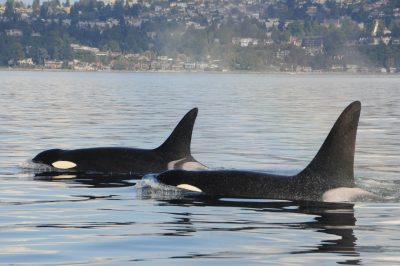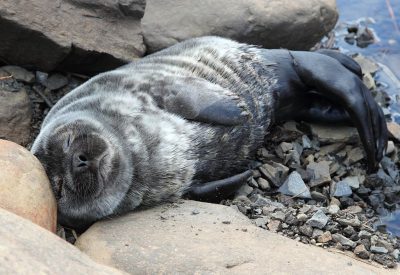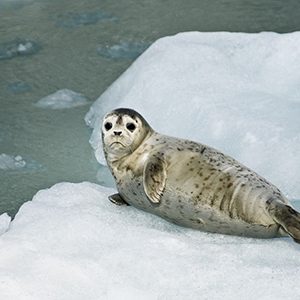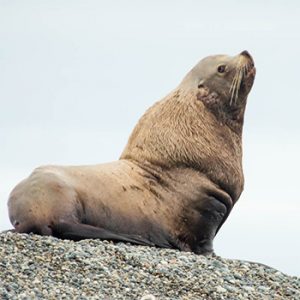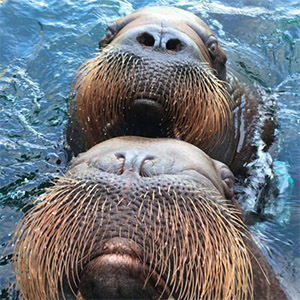What could be impacting the food source of Southern Resident killer whales?
There are currently 74 Southern Resident killer whales, and this population is listed as endangered in both Canada and the U.S. The species relies on Pacific salmon (Chinook and coho) for food, however these salmon populations have been decreasing for decades.
UBC study analyzes the movements and dives of Hudson Bay ringed seals
Being a part of the Arctic food web means constantly moving around trying to avoid being eaten while looking for a snack yourself.
Long-term studies quantify the prey requirements of pinnipeds, and help predict the effects of nutritional stress
Two new studies by Dr. David Rosen answer the question: “How much fish does a seal need?”
You can’t beat a healthy heart
New research is shedding light on the hearts of healthy marine mammals, and how they compare to human hearts
Sea lions and walruses in managed care reveal how wild animals handle environmental disturbance
Knowledge about resting metabolic rates or energy expenditures can lead to big, meaningful changes for the conservation of wild animals.
What do differences in animal behaviour reveal about the decline of Steller sea lions in Alaska?
More than 50 years of studying Steller sea lion behaviour has yielded one of the most complete life history descriptions for any species of marine mammal.
Go walrus, go!
Walruses live in the rapidly changing Arctic. Dr. David Rosen is trying to figure out how climate change will impact the health of young walruses.
Measuring body fat in Steller sea lions and other pinnipeds
The goal is to provide a quick, reliable tool that can be used to evaluate the physiological status of Steller sea lions and other pinnipeds in the field.
